“Wild” Camping of a Different Sort: Theory Camp at the School of Criticism and Theory 2013
by Kelly Tse
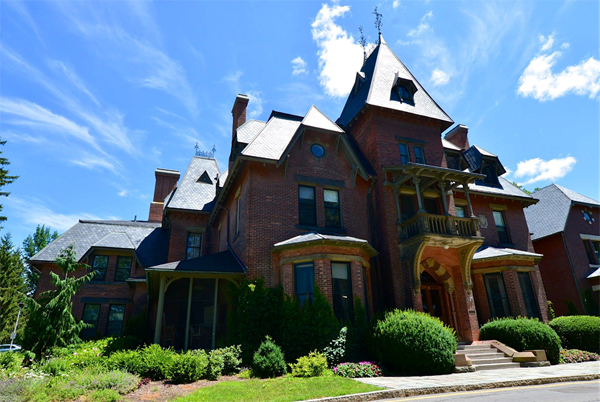
A.D. White House at Cornell University, the home base of the School of Criticism and Theory (SCT)
(Photo courtesy of Camille van der Marcel)
I was never a devotee of wild camping. In fact, I was rather irrationally nervous about the wilderness in general. (Who knows, as someone who grew up in one of the most global metropolises that is urban postcolonial Hong Kong, perhaps my lack of passion about building tents in the wilderness stemmed partly from what Karl Marx famously postulated: mankind’s lamentable alienation from “Mother Earth.”) Yet for reasons I shall explicate below, I have recently learned to appreciate the art of a different but decidedly “wild” sort of camping in the States.
Let me beat around the bush no more and make a clean breast of my “wild” camping experience to you. I was in an intellectually exhilarating six-week theory camp at the School of Criticism and Theory (SCT), currently directed by Prof. Amanda Anderson and located at Cornell University, Ithaca, over the summer. As a platform for vigorous debates on critical approaches and methodologies that are at the theoretical forefront in the humanities, the SCT is dedicated to bringing scholars and scholars-to-be from around the world to engage in cross-cultural critical dialogues. Currently housed at Cornell University, our actual theory campsite, the SCT gives its participants an extra precious opportunity to admire the beauty and elegance of the much-coveted campus. I knew nothing particularly literary about the esteemed American institution except that it was where Pearl S. Buck (1892–1973), the first American woman writer to win the Nobel Prize in Literature and known for her prolific oeuvre of China fiction, pursued her Master’s in literature. And as I set my foot on our campsite, I was so elated by its alluring charm that my earlier envisioning of a Platonic encounter with the popular women writer instantly “melt[ed] into air.”
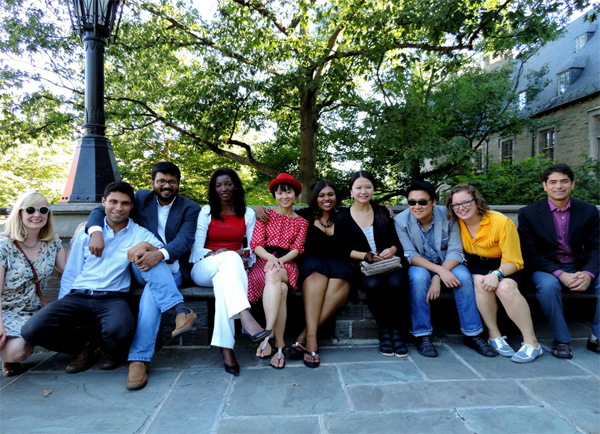
Smiling SCT-ers before the final banquet.
(Photo courtesy of Vasugi Kailasam)
I had the honour to be in Prof. Ian Baucom’s seminar, “Postcolonial Studies in the Era of the Anthropocene,” which comprised more than twenty international participants. Apparently, and perhaps unsurprisingly, given its rather recent incorporation into academic parlance in the humanities, most of our fellow campers did not know exactly what the epoch of the Anthropocene entailed before our camp. Yet over the course of the six wild and raving weeks, as we waded into our substantial pile of readings that included critical and theoretical works of Dipesh Chakrabarty, Robert Young, Ato Quayson, Bruno Latour, Donna Haraway, Timothy Morton and Jane Bennett, our own intellectual tents started shaping up and we came to grasp more substantially the current epoch in which mankind is said to have become a geological force shaping the planet. Our own seminar aside, there were public lectures and mini-seminars that challenged our campers to be even more critically astute. To be sure, circumnavigating the theoretical wilderness was at times a daunting task. Yet little by little, small intellectual sparks gathered momentum and were enough to turn into campfires that eventually lit up our seminar rooms and public lecture theatres. And the wonderful thing was after each mentally exhausting day, we were immediately invigorated by the gorgeousness of the city of Ithaca. Apart from the weekly receptions which were occasions for post-lecture socialization, fellow SCT-ers also initiated an exciting array of side activities ranging from reading groups, film appreciation clubs, discussion workshops to even wilder nightly parties, walking and hiking tours, weekend forays into nearby cities such as New York, Boston and Washington D.C. To the extent that our summer sojourn was so well spent, it was only with great difficulty that we bade farewell to our fellow campers and the wonderful SCT that brought us together.
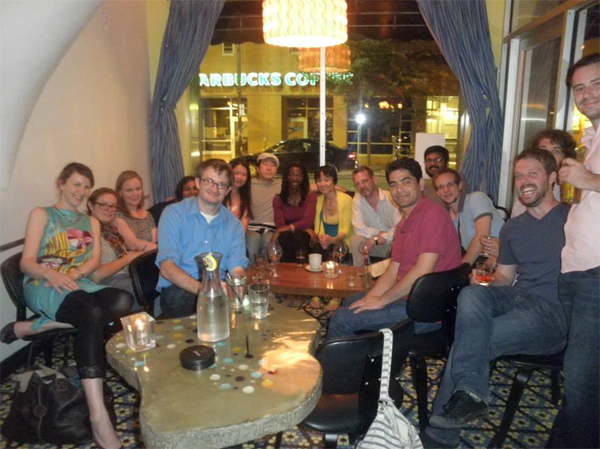
A night with Prof. Ian Baucom and fellow SCT-ers.
(Photo courtesy of Coral Chengyi Wu)
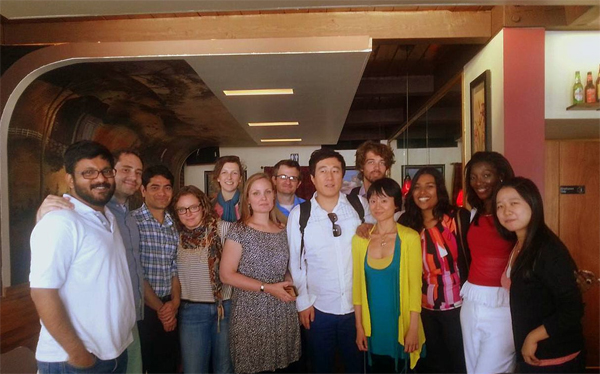
A lunch get-together with “Baucomians.”
(Photo courtesy of Naminata Diabate)
Now, having survived the six intensive weeks of mental and physical labour, I am proud to ask: Who’s afraid of “wild” camping?
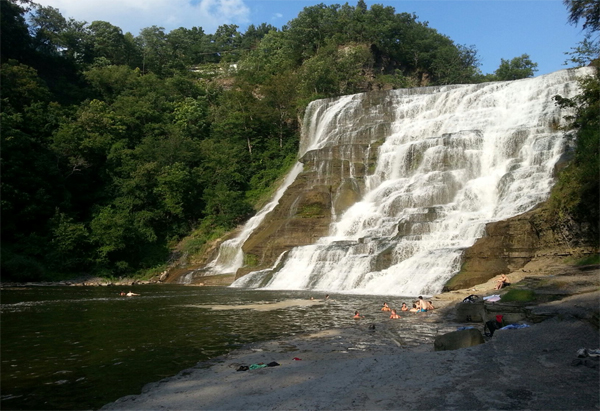
Ithaca Falls: a place to think ecological thoughts.

Our apologies, you must be logged in to post a comment.